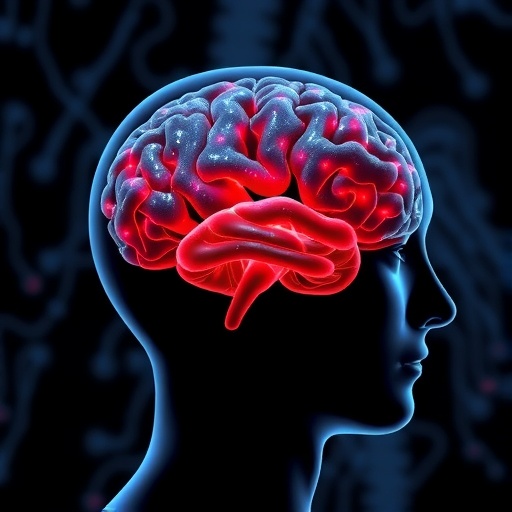In recent years, the medical community has witnessed significant advancements in our understanding of rapidly progressive dementia (RPD), a severe and often devastating clinical syndrome characterized by an accelerated decline in cognitive function over weeks to months. A groundbreaking systematic review published in Translational Psychiatry in 2025 by Lei, Cao, Liu, and colleagues offers a comprehensive exploration of the evolving etiologies behind this challenging condition, shining a spotlight on the complex interplay of neurodegenerative, autoimmune, infectious, metabolic, and neoplastic processes that contribute to its onset and progression.
Rapidly progressive dementia traditionally presented a diagnostic enigma, given its heterogeneous manifestations and overlapping clinical features that often mimicked other neurological disorders. Lei et al.’s review meticulously compiles and analyzes an extensive body of literature, providing clinicians and researchers with a clearer framework to understand the multifactorial nature of RPD. The authors emphasize that while prion diseases were historically the prime suspects in RPD cases, a growing array of alternative etiologies now demands consideration, reshaping diagnostic and therapeutic approaches.
The systematic review underscores how autoimmune encephalopathies have emerged as pivotal contributors to RPD in recent reports. These conditions, characterized by the production of autoantibodies against neuronal surface or synaptic proteins, can provoke rapidly worsening cognitive dysfunction but are potentially reversible with timely immunotherapy. The identification of autoantibody-related RPD represents a paradigm shift, highlighting the importance of early immunological screening as part of the diagnostic algorithm.
In parallel, infectious causes remain critical in the differential diagnosis, notably viral encephalitis caused by herpes simplex virus, progressive multifocal leukoencephalopathy due to JC virus, and other neurotropic infections inducing brisk cognitive decline. The review sheds light on the necessity for rapid cerebrospinal fluid analysis and advanced neuroimaging modalities to detect these infections before irreversible brain damage occurs.
Lei and colleagues also explore neurodegenerative etiologies beyond classic prionopathies, such as Alzheimer’s disease, frontotemporal lobar degeneration, and Lewy body dementia, which may present atypically with accelerated progression. The molecular pathologies underpinning these diseases—aberrant amyloid beta, tau, or alpha-synuclein aggregation—intersect with diverse clinical phenotypes that challenge straightforward diagnosis. The authors advocate for refined biomarker panels and positron emission tomography imaging to discern these aggressive neurodegenerative forms.
Metabolic and toxic causes, while less frequently encountered, are not to be overlooked. Conditions including hepatic encephalopathy, rapidly evolving vitamin deficiencies, and medication-induced cognitive disturbances can precipitate rapid dementia syndromes. The review emphasizes the critical role of comprehensive metabolic panels and medication reconciliations in the initial workup to exclude reversible contributors.
Paraneoplastic neurological disorders, driven by remote immune responses against malignancies, are another significant class explored. The authors delineate how antibodies targeting neuronal antigens elicited by underlying cancers—such as small cell lung carcinoma—can manifest with RPD, necessitating thorough oncological evaluations alongside neurological assessments.
The review carefully addresses diagnostic challenges and proposes an integrative algorithm that incorporates clinical history, neurological examination, serological testing, cerebrospinal fluid analysis, neuroimaging, and histopathological confirmation when clinically indicated. This multidimensional approach facilitates earlier and more accurate diagnosis, which is paramount for prognosis and therapeutic intervention.
Importantly, Lei et al. highlight recent advances in molecular diagnostic techniques, including next-generation sequencing and proteomic analyses of cerebrospinal fluid, which have revolutionized the ability to identify novel and rare causes of RPD. These technologies promise to unveil previously unrecognized pathogenetic mechanisms and tailor precision medicine strategies.
The review also discusses the implications of emerging therapeutic modalities, ranging from immunomodulatory treatments for autoimmune etiologies to antiviral agents targeting infectious causes, and disease-modifying therapies aimed at neurodegenerative processes. The authors propose that early intervention within narrow therapeutic windows could alter the grim natural history traditionally associated with rapidly progressive dementias.
Ethical considerations and challenges in clinical trials for RPD are also examined, given the rapid cognitive decline and high mortality rates that complicate patient recruitment and longitudinal follow-up. The authors advocate for collaborative international registries and biobanks to accelerate research and therapeutic development.
The systemic impact of accurate diagnosis on patient management and family counseling is profound. Understanding the diverse etiologies equips healthcare providers to offer realistic prognostic information, establish supportive care frameworks, and inform genetic counseling when hereditary factors are implicated.
Lei et al. conclude by emphasizing the dynamic landscape of rapidly progressive dementia research, spurred by technological and conceptual advances. Their comprehensive synthesis not only serves as a vital guide for clinicians worldwide but also sets a robust agenda for future investigative efforts to unravel the complexities of these devastating disorders.
This landmark review signifies an inflection point in dementia care, underscoring that rapid cognitive decline is not a monolithic entity but a spectrum of disorders demanding nuanced diagnostic acumen and innovative therapeutic strategies. Such insights will undoubtedly catalyze more effective management protocols and improve outcomes for patients afflicted by this formidable syndrome.
Subject of Research: Rapidly progressive dementia and its evolving etiologies
Article Title: The evolving etiologies of rapidly progressive dementia: a systematic review
Article References: Lei, MH., Cao, LJ., Liu, R. et al. The evolving etiologies of rapidly progressive dementia: a systematic review. Transl Psychiatry (2025). https://doi.org/10.1038/s41398-025-03777-7
Image Credits: AI Generated




